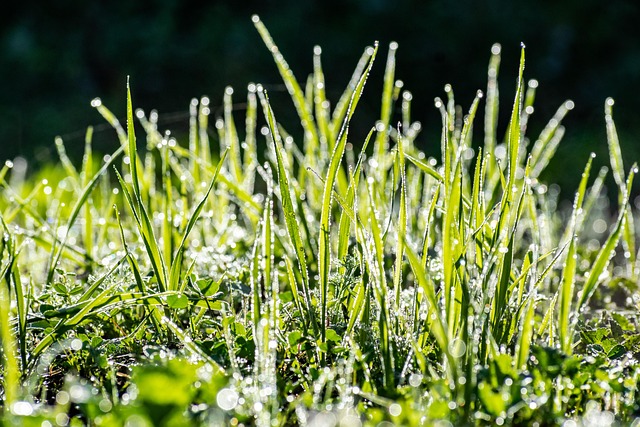In Commerce City, sustainable bare ground weed control for industrial sites leverages natural processes and ecologically friendly techniques, avoiding toxic chemicals. Key methods include deploying biological agents that suppress weeds, using organic barriers to block sunlight from seeds, strategic planting of deep-rooted grasses and wildflowers, and incorporating organic matter into the soil. These practices promote lush grass while minimizing chemical usage, protecting local ecosystems.
- Understanding Bare Ground and Weed Control Challenges in Industrial Sites
- Eco-Safe Lawn Solutions: A Sustainable Approach to Weed Management
- Implement Effective Strategies for Long-Term Weed Prevention in Commerce City
Understanding Bare Ground and Weed Control Challenges in Industrial Sites

In industrial sites, managing bare ground and controlling weeds can present unique challenges. These areas, often left untended due to heavy equipment or frequent activities, are susceptible to rapid weed growth and soil erosion. With a high volume of foot traffic and vehicle movements, maintaining a healthy lawn is no easy feat. Traditional methods might not be effective or environmentally friendly in such settings.
Commerce City businesses seeking eco-safe solutions for bare ground weed control need to adopt innovative approaches. This involves understanding the specific needs of industrial sites, selecting non-toxic, sustainable products, and implementing regular maintenance practices tailored to these conditions. By doing so, they can achieve a lush, green space while minimizing environmental impact.
Eco-Safe Lawn Solutions: A Sustainable Approach to Weed Management

In the pursuit of sustainable practices, eco-safe lawn solutions offer a revolutionary approach to weed management, particularly relevant for industrial sites in Commerce City aiming to maintain lush green spaces while minimizing environmental impact. Traditional methods often rely on toxic chemicals, but these innovative strategies take a different path. By harnessing natural processes and ecologically friendly techniques, it’s possible to achieve effective bare ground weed control without compromising the health of the surrounding ecosystem.
One key aspect is the use of targeted biological agents that suppress weed growth naturally. These solutions mimic the effects of beneficial insects and microbes found in diverse ecosystems, creating a balanced environment where weeds struggle to thrive. Additionally, organic barrier methods, such as applying layers of natural materials like straw or wood chips, physically prevent weed seeds from receiving essential sunlight, fostering a healthier lawn that outcompetes intruders.
Implement Effective Strategies for Long-Term Weed Prevention in Commerce City

In Commerce City, implementing a robust bare ground weed control strategy is essential for industrial sites aiming to maintain a healthy and eco-safe lawn. The first step involves assessing the site’s unique characteristics, including soil composition and drainage patterns. Once understood, professionals can tailor specific solutions like applying organic barriers or utilizing targeted herbicidal applications to prevent weed seeds from germinating.
Long-term sustainability requires regular maintenance and proactive measures. Regular mowing at appropriate heights helps suppress weed growth, while strategic planting of deep-rooted grasses and wildflowers can compete effectively with weeds for resources. Additionally, incorporating organic matter into the soil improves its structure and fertility, creating an inhospitable environment for unwanted plants. These eco-safe practices not only promote a lush lawn but also safeguard local ecosystems by minimizing chemical usage in Commerce City industrial settings.
In addressing bare ground and weed control challenges specific to industrial sites in Commerce City, adopting eco-safe lawn solutions offers a sustainable and effective approach. By combining targeted strategies with long-term prevention methods, these techniques not only mitigate environmental impact but also foster a healthier, more robust landscape. For businesses aiming to enhance their ecological footprint, implementing these strategies is key to achieving successful weed management while preserving the local environment.
